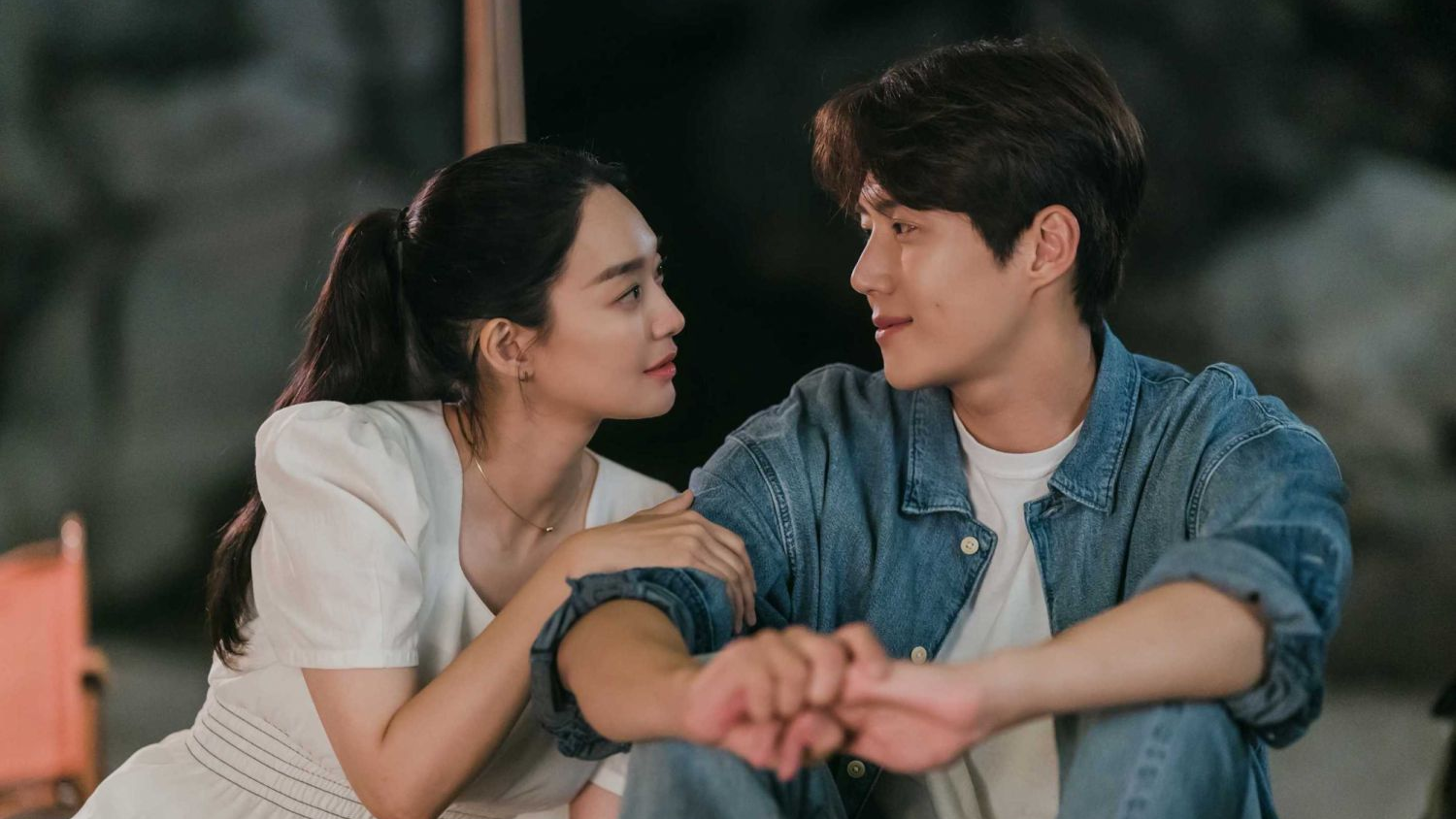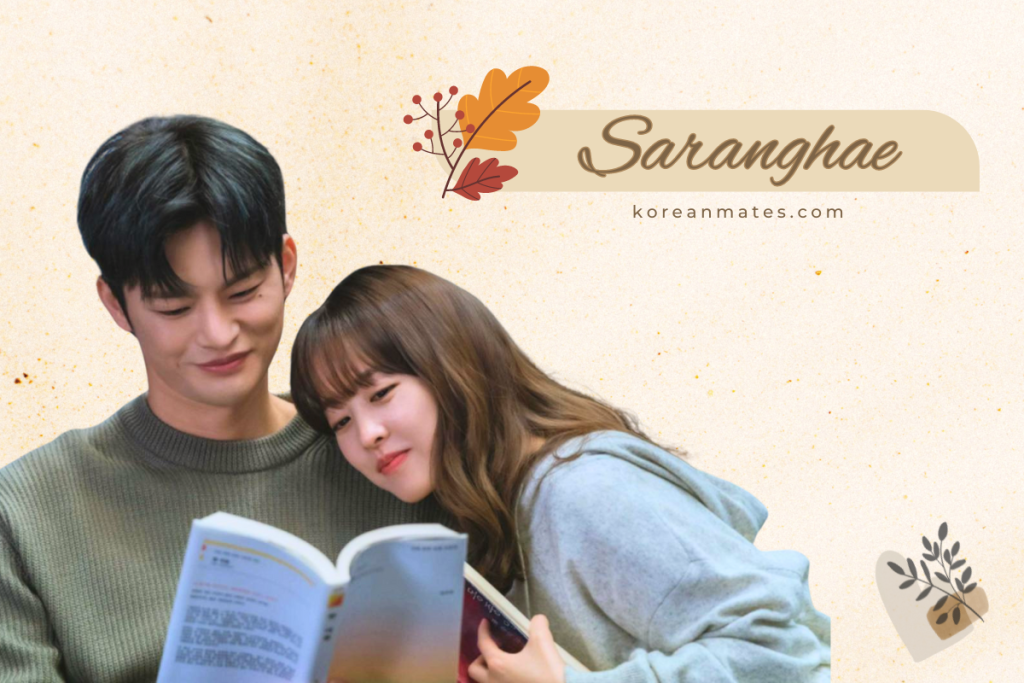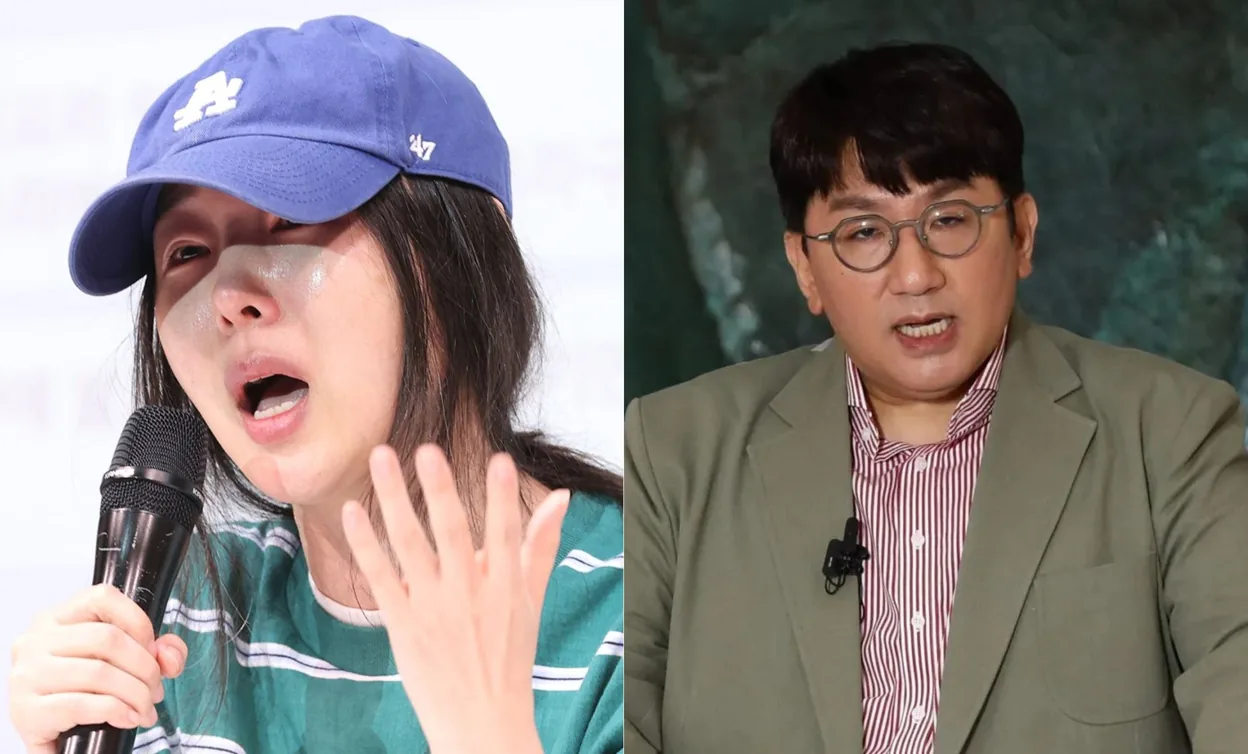Some Korean words are so catchy and easy to memorize that almost every die-hard K-drama fan has already mastered those words and knows their meaning and expressions of it. We are not talking about learning the whole Korean language by watching K-dramas as it can be very difficult and troublesome for anyone. People who watch K-dramas with subtitles are the one who catches up in the words instead of those who watch K-dramas dubbed in English or their local language.
K-dramas are highly engaging which is why fans love to binge-watch a series while diving their mind wholly into the drama plot. While binge-watching a K-drama, some common Korean words that are frequently used in K-dramas get stuck in the mind. There are some words that convey different meanings through different expressions depending on the situation and that is a very attractive quality of Korean words.
Korean Words Used In K-dramas
K-dramas show how some words can be so memorable and distinctive they catch your mind without even trying to memorize them because of their way of expressing themselves. Here we’ll mention some of the frequent Korean words in K-dramas that every K-drama fan must have heard at least once.

1. Annyeong Haseyo (안녕하세요) – Hello or, Greetings
Greetings are the first thing that people encounter anywhere so we’ll also start with the word used in K-dramas for greeting. Even if you live in Korea or ever visited Korea, you will hear the word “Annyeong Haseyo” first while meeting people. Annyeong Haseyo is used to greet or say Hello/Hi to the other person. It doesn’t only mean Hello or Hi, the word also conveys good morning or good afternoon or any kind of greeting when you meet someone.
Anneyeong Haseyo generally means wishing somebody peace or wellness. The word is highly used in K-dramas when they greet each other formally or informally. The full word Anneyeong Haseyo is rather formally used and while talking informally, people only use Anneyeong.
2. Gomawo (고마워) – Thank You
K-dramas always try to portray the true culture of Korea through their use of words and scenarios. Korean people are never behind in showing gratitude and appreciating someone for the smallest things. “Gomawo” or “Gam-sa-ham-ni-da” means “Thank You” which is used to thank people in different situations.
Gomawo is used while talking formally with a friend or with someone you are casual with and Gam-sa-ham-ni-da is more like a polite version of Thank you which is used to thank or show gratitude to someone formally. We hear the word “Gomawo” a lot in Korean Dramas in situations where a person does something kind for the other person.
Also Read: 5 Popular Korean Foods Shown In Korean Dramas that Every K-drama Fan Should Try At Least Once.
3. Gwenchana (괜찮아) – It’s Fine or, I’m Okay
The Korean word used in K-dramas “Gwenchana” is one of the most popular words and is used by international fans to mimic the actors or actresses of the drama. Generally, Gwenchana means “I’m Okay” “I’m Fine” or “No Worries” but it can be also used as a question which is “Are You Okay?” or “Okay?”.
This is a word that carries various meanings depending on how you are expressing it. In K-dramas, the word is used differently in different scenarios as well for example, it is used to show concern for someone by asking them if they are all right, it is also used to assure the other person that I’m all right. International fans really liked the distinctive way of pronouncing and diversified expression of the word and made a lot of shorts or reels using this word as well.

4. Chingu (친구) – Friend
If you watch a friend and family based K-drama then you’ll hear the word “Chingu” a lot. The Korean word Chingu is basically used in the term “Friend”. Korean drama focuses a lot on friends while making a drama as friends play an important role in our real life as well.
There are many K-dramas present in the Korean drama industry that represent friendship and its value in life. Some of the historical dramas like Reple 1988, Twenty-Five Twenty-One, Hospital Playlist, etc are about friendships where every stage of friends is shown. The word Chingu is also used a lot in these types of K-dramas to mention or address each other as friends.
5. Joahae (좋아해) – I Like You
Did you notice when the protagonists in the K-drama use the word “Joahae” to express their feelings and initiate a relationship? The Korean Word “Joahae” means “I Like You” which is used to express the likeliness towards someone. The word is not only used to say I like you, but it is also used to express likeliness towards other things as well in an informal way for example if someone likes sports, they can use the word Joahae to say that.
In Korea, people say I like you in the beginning period of a relationship which is why the word Joahae is highly used in romantic K-dramas when the main protagonists confess to each other. K-drama fans gets butterflies when the confession happens and the relationship between the couple changes by saying the word to each other.

6. Saranghae (사랑해) – I Love You
The most romantic word that makes every K-drama fans blush is “Saranghae”. If you have watched romantic K-dramas you must have heard the Korean word Saranghae which means “I Love You” in Korea. It is an informal way to express love, the word “Sarangheyo” is the formal form of I love you. But as you use the word to the person you are close with, the informal way is less used.
As we said earlier, in the initial stage of a relationship, couples use the word “Joahae” but when their relationship and their feelings for each other go deeper, the couple uses the word Saranghae or I love you to express their love towards the person. The characters of a K-drama use the word Saranghae not only in a romantic relationship, it can also be used for someone they love for example their friends or family.
7. Daebak (대박) – Awesome
Last but not least, the word which is used to express excitement or amusement is “Daebak”. It generally means awesome or jackpot but the word has versatile use of it. Daebak is a popular Korean slang among international fans it has a catchy tone when said in excitement. The characters in K-dramas use the word to express their amazement when they share something shocking or something great.




